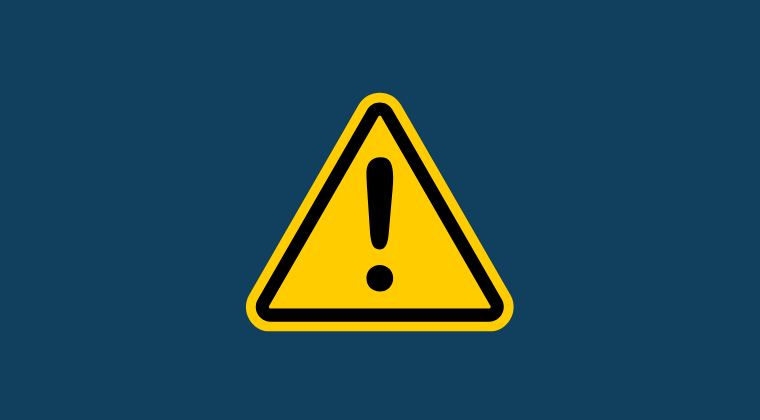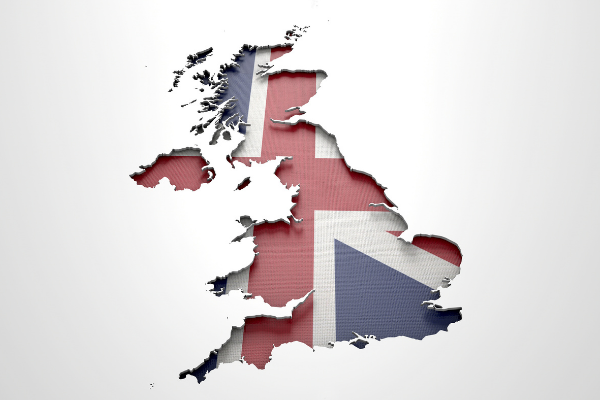BY:
SHARE:

HMRC issued updated guidance on import restrictions for products affected by the Foot and Mouth Disease (FMD) outbreak in Germany.
Restrictions on the movement of certain live animals and animal product imports from Germany into GB
HMRC has updated the guidance for imports into Great Britain (England, Scotland, and Wales) that relate to commodities from Germany, following a confirmed case of Foot and Mouth Disease in Germany on 10 January 2025:
Affected commodities are confirmed as follows:
- live (including non-domestic) ungulates (ruminants and porcine animals, including wild game) and their germplasm
- fresh meat from ungulates
- meat products from ungulates that have not been subject to specific treatment D1 or higher (i.e., D, C, B), including wild game
- milk, colostrum and their products, unless subjected to treatment as defined in Article 4 of Regulation 605/2010
- animal by-products, unless treated to mitigate the risk of FMD effectively
Definition of FMD-susceptible animals
FMD-susceptible animals are covered under the regulation ‘the Foot and Mouth Disease (England) Order 2006’. FMD-susceptible animals are cows, bulls, sheep, goats, deer, camels, llamas, alpacas, guanaco, vicuna, any other ruminant, any swine (that is, a member of the suborder Suina of the order Artiodactyla), elephant or rodent (other than a pet rodent).
A link to all the topical issues to date relating to these measures is below. This includes an update covering Sheep Pox and Goat Pox affecting imports from Bulgaria, Romania, and Greece as examples of present issues.
Imports, exports and EU trade of animals and animal products: topical issues - GOV.UK
2. Foot and Mouth Disease: An update on fresh meat, meat products and preparations currently held at Border Control Points in GB
The UK Office for SPS Trade Assurance updated its risk assessment associated with FMD on 30th January 2025. The updated list for Germany can be found here:
Updated guidance for the Port Health Authorities/Local Authorities (PHA/LA) can be found in Official Veterinarians (OVS) NOTE 2025/08 dated the 29th of January.
This guidance covers consignments of fresh meat, meat products and meat preparations from FMD-susceptible animals from Germany that are currently held at Border Control Posts, where the animals were slaughtered before 10 December 2024 with an accompanying certificate signed before 10 January 2025.
If a business has consignments in this category held at a port, the advice is to contact the PHA/LA at the point of entry where your consignments are being held.
A link to the detailed information document OVS NOTE 2025/08 released by the Imports and EU Policy Team on 29th January can be found here:
3. FMD - Acceptable documents for low-risk meat and dairy products
The Imports and EU Policy Team have also issued guidance document OVS NOTE 2025/09 to Port Health Authorities/Local Authorities (PHAs/LAs) dated 30th January, advising on the acceptable documents for low-risk products or ingredients that do not need to be accompanied by an Export Health Certificate (EHC), from German FMD-susceptible animals.
The following documentation may be accepted:
a dated manufacturers’ certificate or statement related to the consignment's specific goods.
copies of manufacturing records showing accurate temperatures have been maintained throughout the production process.
Important: PHAs/LAs will check the documentation to ensure they are satisfied that the specific products and ingredients in the consignment have undergone the required treatment.
For further advice, contact the PHA/LA at the point of entry for your consignment before you import your goods.
The guidance document released on the 30th of January can be found at the link below:
Submitting the documents
Required documents must be uploaded and attached to the Common Health Entry Document (CHED) import notification created in the Import of products, animals, food and feed system (IPAFFS), in the ‘Additional Documentation’ section. This must be completed before the CHED import notification is submitted.
4. FMD - Pet food and pet chews
Pet food and pet chews are captured under specific Foot and Mouth Disease controls.
Raw pet food:
The import of raw pet food is prohibited. Certificate GBHC562, applicable to raw pet food, cannot be used as compliance evidence as the reference listing has a closing date for Germany.
Dog chews (GBHC563)
Imports of dog chews made from hides and skins or from bones of FMD-susceptible animals are prohibited. Other dog chews will continue to be permitted if they comply with the treatment requirements in certificate GBHC563.
Processed food (other than canned pet food)
If the processing method of processed pet food falls under 3 (b) (iv) of Ch II, Annex XIII to Regulation 142/2011, ‘subject to a treatment such as drying or fermentation’, the import will be prohibited.
Other processed pet food is treated as per the treatments set out in Annex XIII, Chapter II, point 3b). i, ii, iii and v of Regulation 142/2011 will continue to be permitted.
Canned pet food
Canned pet food is permitted if it complies with the requirement set out in Annex XIII, Chapter II, point 3.a) of Regulation 142/2011
Further details on the import of other animal by-product commodities are expected to be published shortly.
5. FMD – Action to take to ease border processing delays
The enhanced controls for affected goods from Germany can prove challenging to manage in working practice, particularly as they have been implemented quickly, leaving some consignments held at Border Control Points.
To help mitigate further delays, HMRC has suggested that the following actions should be considered in good time, and that the trader should ensure that their agents know the suggested action points.
1. Multiple CHEDs under the same MRN.
Mixed loads and Groupage:
Where a load or container consists of a mixed load or groupage, there will be an
increased risk of an SPS hold on the Customs declaration if one or more of the consignments in the load require an inspection.
Example: an agent or importer correctly submits 3 separate CHED import notifications in IPAFFS for 3 consignments in a vehicle’s load, and all 3 are correctly recorded on the Customs declaration in CDS.
A check on IPAFFS indicates that two of the consignments have been cleared as valid, but one is still undergoing documentary checks and has not yet been cleared.
Therefore, a Sanitary and phytosanitary (SPS) hold will be indicated on the Customs declaration in CDS, and the whole load will be held.
Once all 3 CHEDS are cleared as valid by the Port Health Authority, the SPS hold will be removed from the Customs declaration, and HMRC/Border Force will release the load if no further Customs checks are required.
Action: It is therefore suggested that users check the status of consignments via IPAFFS and CDS and, where necessary, discuss options that could minimise delays with the Port Health Authority/Local Authority (PHA/LA) at the point of entry.
Options may include devanning and separating the consignments and then resubmitting the Customs declaration for the load.
2. Removal of consignments for inspections.
If off-loading a consignment before it reaches Great Britain cancelling the accompanying CHED import notification in IPAFFS, the pre-lodged Customs declaration must also be amended in CDS to remove the relevant commodity codes and CHED reference number for the off-loaded consignment.
This will also apply if the PHA has been asked to cancel the CHED on the trader’s behalf.
Action: The Customs declaration must be amended to remove any cancelled CHEDs.
If the Customs declaration is not amended, the SPS hold status will continue, as CDS cannot access the inspection decision for the cancelled CHED for the off-loaded consignment.
Consignments will not be released until the Customs declaration is amended and the SPS hold is lifted.
In the exceptional case where the CDS entry cannot be amended, the National Clearance Hub can issue a manual release. However, the NCH will NOT release holds for any other reason.
3, Consignment remains under an SPS hold in CDS
If an SPS consignment remains on hold in CDS with all checks having been made as to the CHED validity on IPAFFS, there may be further data inconsistencies between the CHED import notification and the Customs declaration, and submitters should check the submitted data.
Action: Users should check both submissions and amend, as necessary. The most common errors include:
- The CHED reference number being incorrectly entered into CDS
- Commodity codes not aligning
- Non-English characters/text copied and pasted into CHED fields on IPAFFS.
- The final destination is not a recognised GB address/country code and is not given as GB.
The PHA at the point of entry is the appropriate first point of contact for any of the above actions.
6. HMRC - Safety and security declarations required from 31st January 2025
Since 31st January 2025, all EU imports into Great Britain now require safety and security declarations. This follows S&S declarations that have been required for the Rest of the World, which were already in place
Hauliers or carriers are legally responsible for submitting safety and security declarations. Further detailed information can be found in the S&S manual at the following link.:
Safety and security declarations - Guidance - GOV.UK
Where S&S declarations are not submitted or are not submitted in good time, goods could be held at the border, and financial penalties may become due
Further information can be found at the link below
'Making an entry summary declaration'
7. Useful contacts
Imports of animal products:
Urgent questions about imports of animal products, including germinal products, should be directed to the Port Health Authority or Local Authority at the Border Control Post (BCP) for the goods’ point of entry.
BCP and PHA/LA contact information can be found at the links below:
BCP, CP, and IC Locations for Plants – Google My Maps
Animals, animal products and HRFNAO imports: authorised border control posts in the UK - GOV.UK
Imports of live animals: for urgent questions about imports of live animals, contact APHA.
8. Sources of information
Defra has issued guidance and information on import restrictions affecting trade in EU animals and animal products at the following link:
Imports, exports and EU trade of animals and animal products: topical issues - GOV.UK
Technical details on import restrictions against affected countries can be found on the link below:
Technical guidance for Port Health Authorities/Local Authorities that may be useful for traders can be found in Official Veterinarian Notices at the following link.
Foot and Mouth Disease (FMD) webinar recording 16th January 2025
Defra ran an FMD guidance webinar for businesses on the 16th of January, with Defra subject matter experts answering the most common questions from businesses, including goods processing requirements to allow for import.
The webinar recording can be found on YouTube at the following link:
Defra Foot and Mouth Disease Trader webinar - 16 January 2025
OneCall™ Email assistance as and when required; A one-call solution for all your import, export and customs enquiries. Export help. Import help. Customs help.
Stay informed about customs and international trade matters by subscribing to our OneCall™ service. This comprehensive offering includes a dedicated email helpline for support, timely practical updates direct to your inbox (Did You Know?), monthly UK Customs & Trade Briefings and access to an interactive members' area with an exclusive community for our subscribers.
International Trade Updates & Spotlight Newsletter
Subscribe to our free information emails covering international trade topics...
MORE INDUSTRY INSIGHTS...









